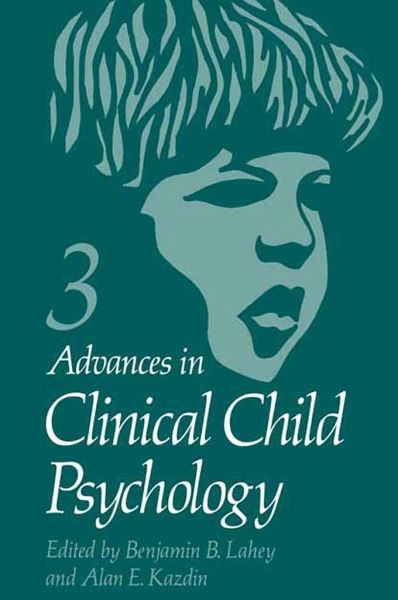
Advances in Clinical Child Psychology

PAYBACK Punkte
20 °P sammeln!
The present volume has been prepared during the International Year of the Child. Designation of a special year devoted to children underscores the widespread recognition of the importance of scientific advances and humane concern over the welfare of children. Clinical child psychology, the topic of the present serial publication, is especially important in recognition of the year of the child. Clinical child psychology at once combines areas of basic and applied research. The subject matter is concerned with understanding the nature of child development and the many influences upon which such ...
The present volume has been prepared during the International Year of the Child. Designation of a special year devoted to children underscores the widespread recognition of the importance of scientific advances and humane concern over the welfare of children. Clinical child psychology, the topic of the present serial publication, is especially important in recognition of the year of the child. Clinical child psychology at once combines areas of basic and applied research. The subject matter is concerned with understanding the nature of child development and the many influences upon which such development depends. Moreover, the clinical orientation emphasizes the extension of this research to top ics that directly affect the welfare of children and adolescents. Advances in Clinical Child Psychology publishes scholarly reviews and evaluations of many different areas of research and application. In the current volume, the third in the series, a variety of topics are addressed. Theseinclude the development of social behavior, the emergence and modification of sex-typed behavior, family systems, self-help proce dures to train parents, assessment of intelligence, childhood obesity, the development and treatment of asthma, pediatric psychology, treatment of severely disturbed children, language development, and education of disadvantaged elementary school students.












